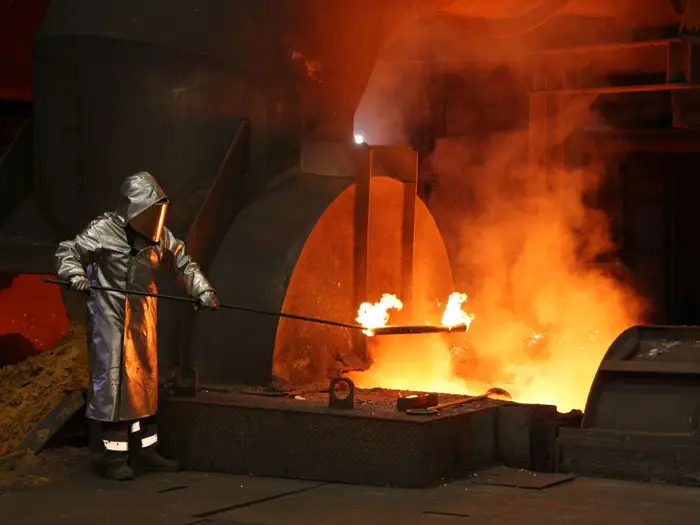etal tariffs may cause price increases for American goods. A 25% tariff will be placed on all steel and aluminum imports into the United States, eliminating exemptions for commodities from key trading partners such as Canada, Mexico, Brazil, and the European Union.

President Donald Trump’s enhanced tariff measures, which are set to take effect next month, would force many US firms that wish to import metals to pay more.
However, there is a danger that corporations would pass on the increased costs, or a portion of them, to customers.
What things might become more expensive since steel and aluminum are essential components in many products?
canned food, beer, and carbonated beverages
According to the Can Manufacturers Institute (CMI), a business group representing can-makers, around 70% of the steel used in the United States to create food cans is imported today, primarily from Germany, the Netherlands, and Canada.
After Trump imposed tariffs on steel in 2018, several can-makers received “exclusions” from those import duties, despite steelmakers’ complaints, due to the restricted output of the type of steel needed to create cans in the United States.
Since then, steel producers have reduced output even more, raising prices, according to the CMI, which submitted a letter to the Trump administration earlier this month signed by major food firms such as General Mills, Del Monte, and Goya.

Robert Budway, president of the CMI, stated that without exclusions for can producers to import steel tariff-free, supermarket costs for canned foods manufactured in the United States are likely to rise.
“While the president may believe that these tariffs are protecting the steel industry, they certainly are undermining our food security and our supply resiliency for American canned food, which Americans rely on every day,” Mr. Budway explained.
When it comes to aluminum, brewers and fizzy drink manufacturers, such as Coca-Cola, have warned that the shift will increase expenses and may result in higher price for customers.
“We control enough variables that we can adapt and mitigate our way through what is happening,” Coca-Cola CEO James Quincey told shareholders this week.
Trump has stated that there would be no exclusions from the restrictions this time, either for individual items or for specific nations, although some industries are hopeful he will back down from that position.
Cars
After Trump implemented steel and aluminum tariffs during his first term, automakers such as Ford and General Motors warned that the measures would increase their expenses by nearly $1 billion apiece.
Morningstar anticipated that tariff expenses would result in an approximately 1%, or $300, price increase for customers.

David Whiston, an analyst at Morningstar, cautioned that Ford may face a similar cost hike this time, although it was unclear how customers would be affected.
Affordability concerns in a market where sales have yet to return to 2019 levels may restrict how much of the expenses firms choose to pass on, according to Michael Wall, an auto analyst at S&P Mobility.
However, he stated that it was still “realistic” to anticipate some of the expenses associated with metal tariffs to be passed on to customers.
However, he stated that Trump’s declaration of tariffs on all items imported from Canada and Mexico, which is now on hold until March, will have a far greater impact on customers.
Ford CEO Jim Farley warned at a business conference that Trump’s recent policies will cause “a lot of cost and a lot of chaos” in his sector.
According to TD Economics, if blanket taxes on imports from Mexico and Canada were implemented, automobile prices might rise by almost $3,000 per vehicle.
Construction, Housing, and Appliances
The construction industry as a whole is one of the largest consumers of steel, which developers and homebuilders use for everything from building frames to appliances.

Carl Harris, head of the National Association of Home Builders, said Trump’s decision to slap tariffs on steel and aluminum went “totally counter” to his claimed objective of making housing more accessible, warning that it would boost prices and discourage growth and rebuilding.
“Ultimately, consumers will pay for these tariffs in the form of higher home prices,” he told me.
The National Association of Home Builders has asked the president to exclude construction supplies from the proposed tariffs.
After Trump implemented steel tariffs in 2018, appliance giant Whirlpool saw an unexpected $350 million cost hike, which it attributed to the rise in steel prices.
Companies that are unable to absorb such expenses are likely to pass them on to consumers through increased retail prices.


